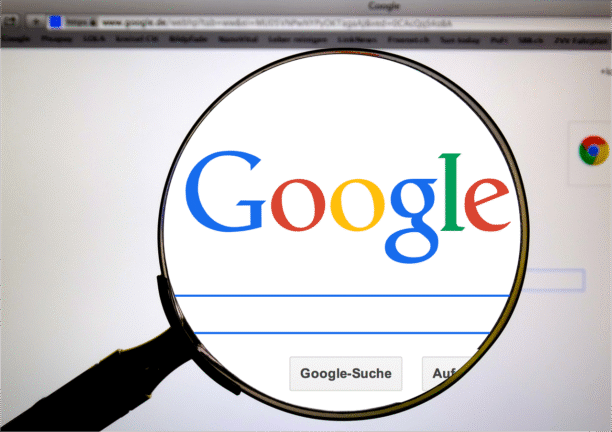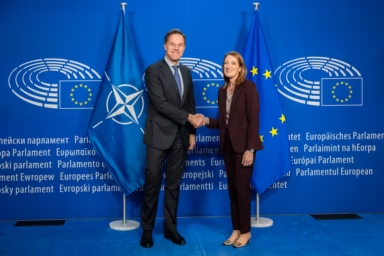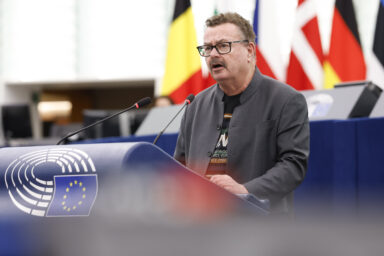Both Washington and Brussels go after the US tech giant but the convergence of their interests does not extend any futher than that. At a time when the rules-based order is exiting the world stage, the uncertainty helps no one.
European Council President António Costa puts on a brave face, insisting transatlantic relations have stabilised. “We managed to stabilise the transatlantic relations,” he declared, framing Donald Trump’s return to power—marked initially by claims the EU was formed to “screw” the US—as a relic. Nine months on, Mr Costa speaks of a “new stability” built on defence pledges, a trade deal, and co-operation over Ukraine.
“If you remember his first declarations…it seems as if it was something that happened 10 years ago,” he told the FT. But Brussels’ optimism collides with discordant realities: the European Commission fined Google €2.95bn for antitrust abuses days before Mr Trump threatened retaliatory tariffs, even as his own Department of Justice pursues a nearly identical case against the tech giant.
The Commission’s ruling against Google—ordering it to end “self-preferencing” in search ads—drew swift fury from Washington. Mr Trump labelled the fine “very unfair” and vowed to “nullify” it via Section 301 tariffs, accusing Brussels of targeting “taxpaying American companies”. Yet in a twist Washington’s antitrust case against Google, mirroring the EU’s, recently barely survived a similar federal court challenge.
You might be interested
‘Necessary and proportionate‘
European Commission Vice-President Teresa Ribera argues: „At this stage, it appears that the only way for Google to end its conflict of interest effectively is with a structural remedy, such as selling some part of its Adtech business. This seems both necessary and proportionate to effectively stop the infringement.“ The parallel legal actions expose a transatlantic paradox: shared regulatory grievances against Big Tech, yet divergent political postures.
Mr Costa dismissed the clash as routine friction among allies. “Friends don’t always agree on everything…We respect their opinion and for sure they respect our decisions,” the Council President said. He insisted digital regulation was excluded from the EU-US trade deal. The pact imposed 15-per-cent tariffs on many EU exports, following European pledges to spend five per cent of GDP on defence. The shift coaxed Mr Trump into backing European-led security guarantees for Ukraine. “You’re respected all over the world,” he told Commission President Ursula von der Leyen last month.
It appears that the only way for Google to end its conflict of interest effectively is with a structural remedy, such as selling some part of its Adtech business. — Teresa Ribera, European Commission Vice-President
But the bonhomie is fragile. EU officials privately warn the trade deal merely “bought…some time” with Mr Trump, whose threats to upend it—particularly over auto tariffs—linger. The Commission’s draft Strategic Foresight Report on the global order, set for publication this week, strikes a darker tone. It warns the rules-based system may not recover from Mr Trump’s tariff wars and institutional sabotage. “A return to the previous status quo seems increasingly unlikely,” the text states, noting the EU’s reliance on multilateralism for trade, standards, and partnerships. “The instability…has a destabilising effect on the EU’s ability to act in the interest of its economy.”
New alliances
The report, seen by Politico, urges Brussels to spearhead reforms at the WTO and UN while forging “new alliances based on common interests”. It also calls for preparing Europe for AI matching human cognition, geoengineering technologies like solar dimming, and mining critical minerals in space or deep seas. These proposals underscore the bloc’s dilemma: clinging to a disintegrating order while scrambling to shape its successor.
Mr Trump’s tariff threats, amplified by the Google row, highlight the stakes. Section 301, a Reagan-era tool revived against allies and adversaries alike, has pummelled the WTO’s authority. The Commission’s draft implicitly concedes the body is beyond rescue—a blow to the EU, whose internal market hinges on enforceable global rules. Mr Costa, ever the pragmatist, downplays systemic ruptures. The trade deal’s “added value is to provide predictability,” he insists. “It’s in the interest of both…not to go back to uncertainty.”
A return to the previous status quo seems increasingly unlikely. — draft statement of the European Commission’s Strategic Foresight Report
Yet uncertainty is precisely what looms large. The EU’s antitrust crusade against Silicon Valley—a legacy policy—now risks inflaming a president who views regulatory actions as trade barriers. Mr Trump’s mixed signals on Ukraine—from musing about sanctions relief for Russia to backing European security plans—further cloud the horizon. Behind the scenes, Commission officials fret over his “proclivity for unexpected policy shifts”, particularly since his reelection last year.
A work in progress
The draft report’s bleak outlook contrasts sharply with Mr Costa’s diplomacy. Where he sees a “new common ground”, the Commission foresees a fractured world demanding radical adaptation. “The EU should…shape the discussion about a new rule-based global order,” it argues—a tacit admission that the old one is unsalvageable.
For now, transatlantic stability remains a work in progress. Brussels savoured Mr Trump’s praise for European defence spending and his Ukraine pivot. But the Google saga—a microcosm of deeper tensions—reveals the cracks beneath. As the Commission prepares for a post-WTO era, Mr Costa’s assurances of mutual respect appeared to risk ringing increasingly hollow. The EU’s challenge is no longer managing a predictable ally, but navigating a world where power bends rules—and the referee’s authority is collapsing.
It’s in the interest of both ‚the EU and the US) not to go back to uncertainty. — António Costa, President of the Council of the European Union
The European Comission did not immediately respond to EU Perspectives‘ query about possible future development of the tensions related to the Google case.











